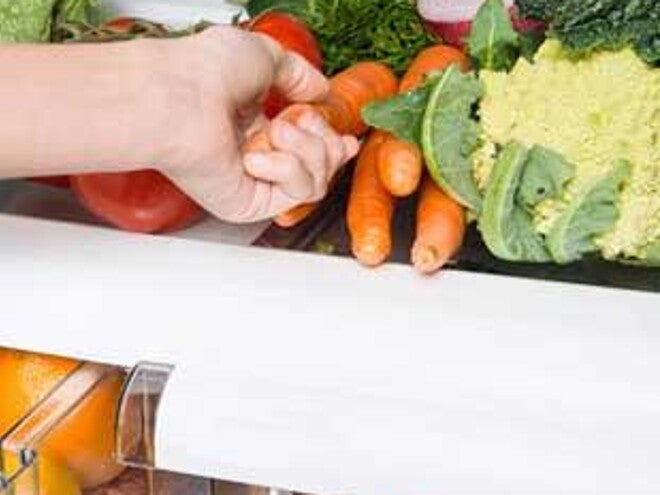
Preparing and Storing Solid Foods for Your Child
Q1: What are the most important guidelines regarding the preparation of solid foods?
When your child begins to eat solid food, you should think carefully about hygiene. The immunity system of children is less developed than that of adults, and their stomachs are particularly sensitive to insects and contaminants. Here are the guidelines you should follow.
- Use fresh ingredients so there is no change in the number of nutrients that your child gets in his food.
- Wash all kinds of fruits and vegetables carefully before use and peel the quantity he needs.
- Replace the bibs and kitchen aprons continuously.
- Do not add salt to the child's food. Replace it with light herbs and spices.
- Do not add sugar unless it is necessary.
- Remove the fat from the meat and seeds from fruits and vegetables when preparing them. Mash the elements well so that the child can eat them.
- Avoid washing raw eggs before placing them in the refrigerator, because this increases the likelihood of bacteria on the shell penetrating the egg.
- Cooking with steam is the best way to help maintain basic flavors and nutrients.
- Cook the child's food completely until it is hot, then cool it before offering it.
- Do not heat the child's food more than once.
- When using a child's food that was frozen, thaw it well before use by putting it in the refrigerator for a sufficient time.
- Make sure to check the production and expiry dates of the food before offering it to your child.
Q2: What are the most important guidelines for storing baby food in a safe manner?
- Stick to the food expiry date.
- Do not refreeze food after defreezing it.
- Store the leftovers - each type separately without mixing it with other items - so that its taste does not change or get spoiled.
- You can store the baby food in the refrigerator for one day and freeze it for up to a month.
- Close the infant cereal pack tightly after each use and store it in a dry and cold place.
- Do not keep the remains of the infant cereal meal.
- Use the infant cereal pack contents within four weeks from opening the tin.
- Separate ready-to-eat food from raw food.
- Put the raw uncooked meat, poultry, and fish in plastic containers or sealed bags to prevent their juices from leaking on other food.
- When preserving food in large quantities, divide it into smaller quantities and store it in light containers so that the food cools faster. This prevents the possibility of bacteria multiplying.
- Freeze any food you will not use within 24 hours.
- When reheating food, make sure it is fully heated and then wait for it to cool down before offering it to your child.
- Do not heat the food more than once.
- Always throw out the leftovers that remain in your child's bowl. The food which is contaminated with saliva (from the baby's mouth or through the spoon) contains bacteria that will certainly multiply if it is preserved.
- Make sure the refrigerator temperature is between zero and five degrees Celsius.

